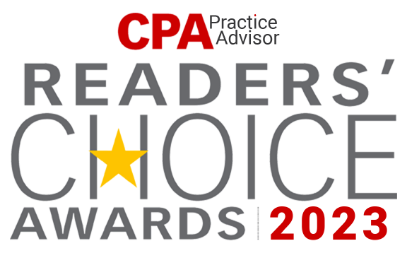The importance of diversity and gender balance in professional fields, including accounting, has gained recognition in recent times. As a crucial component of the business world, the accounting profession greatly benefits from incorporating varied perspectives and experiences in its decision-making processes.
Achieving gender balance within the accounting profession is crucial for fostering an inclusive and equitable environment. By ensuring that women have equal representation and opportunities at all levels, the profession can tap into a broader pool of talents and perspectives, ultimately leading to better outcomes for organizations and society.
Overview of the Current Representation of Women in Accounting
To better understand the status quo, it is essential to examine the current representation of women in accounting roles. As survey conducted in 2021, women constitute a significant portion of the accounting workforce, with their numbers steadily increasing over the years. However, when looking at the distribution across different levels, disparities and gaps in representation compared to men become evident.
At the entry level, the representation of women is relatively high, often close to parity with men. However, as we move up the ranks, women become increasingly underrepresented. In mid-level positions, the percentage of women tends to decrease, and the disparity becomes more pronounced at the leadership level. Despite the increasing number of women entering the accounting field, as demonstrated by Statista, there is still work to be done to ensure equal opportunities for career advancement and leadership roles for women.
Also Read: Top 25 Accounting Influencers You Should Follow in [2024]
Notable Achievements and Success Stories of Women in Accounting
Throughout history, women accountants have achieved significant milestones and made remarkable contributions to the profession. Since the early 20th century, women have been challenging societal norms and proving their expertise in accounting.
Examples of pioneering women accountants include Mary Harris Smith, the first woman to hold an executive position at a major accounting firm and more. These women and many others have laid the groundwork for gender equality in the accounting profession.
The efforts of these pioneering women accountants have had a transformative impact on the accounting profession. By breaking through gender barriers, they have paved the way for future generations of female accountants to enter the field and excel.
Their persistence and resilience have challenged the stereotypes and biases that previously hindered women’s progress in accounting. As a result, more women now can pursue successful careers in this traditionally male-dominated field.
The success stories of women accountants serve as an inspiration to aspiring professionals and emphasize their value and contribution to the profession. Women accountants have shattered glass ceilings and proven that gender is not a barrier to success in accounting. These achievements highlight the positive change driven by women accountants and their ability to excel in leadership roles.
Research and studies have consistently shown that women bring unique perspectives to the field of accounting. Attention to detail, effective communication skills, empathy, and strong collaboration abilities are among the specific qualities that women excel at in the profession.
Their ability to approach problem-solving from different angles and prioritize stakeholder needs brings innovation and balance to accounting practices. These skills contribute to the overall success and growth of the profession while fostering a more inclusive and diverse industry culture.

Barriers Faced by Women in Accounting
Despite significant progress towards gender equality, women in accounting still face various barriers that obstruct their career progression and professional growth. Understanding these barriers is crucial to creating a more inclusive and supportive environment for women in the accounting profession.
- Gender Biases and Stereotypes in the Workplace: Gender biases and stereotypes continue to impact women’s career progression within the accounting profession. Preconceived notions about gender roles and abilities can limit opportunities for women and impede their advancement. For example, stereotypes may assume that women are better suited for supportive roles rather than leadership positions, leading to a lack of representation and diversity in higher-level roles within accounting firms.
- Glass Ceiling Effect and Limited Opportunities for Career Advancement: The glass ceiling effect is a significant barrier to women’s access to leadership positions in accounting firms and organizations. Despite their qualifications, women often face limited opportunities to progress beyond middle management roles. Barriers such as a lack of mentorship, sponsorship, and challenging assignments can hold back their career advancement. The absence of diverse role models and a limited network of influential professionals may further contribute to this constraint.
- Work-Life Balance Challenges and Societal Expectations: Like many other professions, women in accounting often struggle with work-life balance challenges. Balancing family responsibilities and professional growth can be particularly demanding. Societal expectations and cultural norms that place a disproportionate burden on women to manage household and caregiving responsibilities can limit their ability to pursue demanding careers in accounting fully. These factors may lead to fewer women in leadership positions and a lack of representation at higher levels.
- Impacts of Unconscious Biases on Women’s Professional Growth: Unconscious biases can significantly impact women’s professional growth in accounting. Biases in decision-making processes, such as promotions, pay raises, and project assignments, can limit women’s opportunities for growth and recognition. These biases may result from subjective evaluations, lack of awareness, or systemic factors. Increased awareness, education, and the implementation of unbiased practices are necessary to mitigate these effects and ensure equal opportunities for career advancement.
Also Read: 7 Ways You Can Empower Women In Your Accounting Firm
Strategies to Encourage and Empower Women in Accounting
One of the key strategies to encourage and empower women in accounting is the improvement of recruitment and retention practices. By focusing on creating a welcoming and inclusive environment for women, accounting organizations can attract and retain a diversified talent pool. Following are some more strategies that can be implemented:
- Diverse applicant pools and reaching out to women candidates: It is crucial to have a disparate applicant pool to attract more women candidates. Accounting organizations can reach out to potential candidates through targeted recruitment efforts. This can include participation in career fairs and conferences specifically focused on women in accounting, partnering with universities and professional organizations for recruiting events, and utilizing online platforms that women are likely to be active on, such as LinkedIn groups and professional networking websites.
- Inclusive job descriptions and unbiased evaluation criteria: Accounting organizations should ensure that their job descriptions are inclusive, avoiding gender-specific language and emphasizing the values of diversity and inclusion. Furthermore, evaluating candidates based on unbiased criteria can lead to fairer assessments and better representation of women in accounting roles.
- Building supportive networks and mentorship programs: Different types of mentoring relationships play a crucial role in helping women succeed in accounting. Accounting organizations can promote the establishment of formal mentorship programs and networks to facilitate guidance, support, and advancement opportunities for women. These programs can pair experienced professionals with aspiring female accountants, creating a support system that encourages career growth and development.
- Providing equal opportunities for leadership positions: To empower women in accounting, it is important to encourage accounting firms and organizations to establish policies that promote gender diversity at leadership levels. Transparent promotion and selection processes play a key role in ensuring equal opportunities for men and women to assume leadership roles. Organizations should aim to create an environment where leadership positions are accessible to all, regardless of gender.
- Offering flexible work arrangements and promoting work-life balance: Recognizing the varied needs of women, accounting organizations should advocate for flexible work arrangements. This can include remote work, flexible hours, and job-sharing arrangements. Providing such flexibility not only helps attract more women to accounting roles but also contributes to creating a supportive work environment that values work-life balance.
- Encouraging professional development and continuing education: Promotion of continuous learning and professional development is crucial for women in accounting. Accounting organizations should provide resources and opportunities for skill-building, networking, and career growth. This can include sponsoring industry certifications, organizing training programs and workshops, and supporting attendance at conferences and seminars.
By implementing these strategies, accounting organizations can improve their recruitment and retention practices, attract more women candidates, and provide an environment where women can thrive and succeed in their accounting careers.
Promoting Diversity and Inclusion in the Accounting Profession
By taking an active role in driving change, many entities can significantly contribute to creating a more inclusive environment. Here are some initiatives and programs that organizations can implement:
- Developing inclusive workplace policies and cultures: Organizations should advocate for the development and implementation of policies and practices that support diversity, equity, and inclusion within accounting firms and organizations. This includes establishing zero-tolerance policies for discrimination and harassment. Creating a work environment where all individuals feel valued, respected, and supported is essential for attracting and retaining women in accounting roles.
- Implementing diversity training and awareness programs: It is crucial to educate employees about unconscious biases and foster a more inclusive workplace culture. Organizations can implement diversity training programs to raise awareness about bias and its impact on decision-making processes. By providing employees with the knowledge and tools to recognize and challenge biases, organizations can work towards creating a more equitable and inclusive workplace. Sharing examples of successful diversity programs implemented in other industries can serve as inspiration and guidance for accounting organizations.
- Promoting gender equity in pay and promotions: Addressing the issue of gender pay gaps within the accounting profession is important for promoting gender diversity and inclusion. Organizations should advocate for pay equity and encourage accounting firms to conduct regular pay audits. Implementing fair and transparent compensation practices helps ensure that men and women receive equal pay for equal work. Additionally, organizations should strive for equal opportunities for promotion and advancement, taking steps to eliminate any biases or barriers hindering women’s career growth.
- Encouraging and recognizing women’s contributions and achievements: It is crucial to acknowledge and celebrate the accomplishments of women in accounting. Organizations can promote gender equality by establishing awards, recognition programs, and platforms that highlight women’s contributions to the profession. Recognizing the achievements of women not only provides inspiration but also demonstrates that their contributions are valued and recognized. By doing so, organizations can encourage more women to pursue careers in accounting and inspire future generations of female accountants.
Conclusion
Gender diversity in accounting brings many benefits, including improved financial outcomes, increased innovation and creativity, stronger corporate governance, and better decision-making. Throughout this white paper, we have discussed various strategies for promoting gender diversity in accounting, such as creating inclusive workplace cultures, implementing diversity training programs, and promoting gender equity in pay and promotions.
It is imperative for individuals, organizations, and professional bodies to take action to support and empower women in accounting. By offering mentorship, creating development opportunities, advocating for policies, and recognizing women’s contributions, stakeholders can take steps toward creating a more inclusive accounting profession.
Achieving gender parity in accounting will result in significant social and economic benefits. Women will have an equal opportunity to contribute their skills and expertise and make meaningful contributions to the industry. Moreover, gender parity will lead to a professional culture that values diversity and promotes equity, creating an environment that fosters innovation, improves business bottom lines, and encourages growth.
The vision for a more inclusive future is to create an accounting profession that reflects and benefits everyone in society, regardless of gender. Ultimately, achieving gender diversity in accounting is a win-win situation that allows everyone to benefit. Let us work together to inspire the next generation of women in accounting and build a more equitable and inclusive future.








